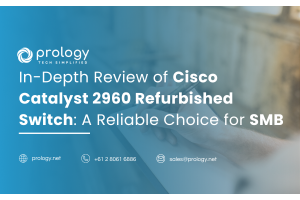4G/5G Network Equipment: The Optimal Solution for Business Network Systems
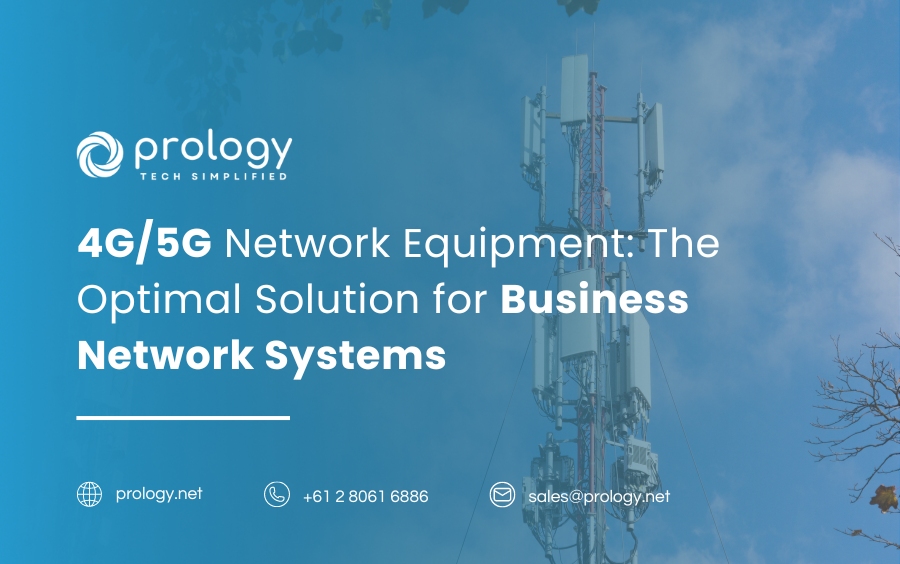
As 3G services are officially phased out across Australia, transitioning to 4G and 5G technologies becomes not just a smart choice but a necessity for businesses seeking reliable network solutions. These advanced technologies offer significant advantages in terms of speed, coverage, and capacity, making them ideal for modern business environments where stable, fast, and flexible connections are essential. With Prology's cutting-edge 4G/5G network equipment, you can future-proof your business by ensuring seamless connectivity, whether you’re supporting IoT devices, handling high data traffic, or maintaining secure communication channels. Choose Prology to stay ahead in a rapidly evolving digital landscape and empower your business with the best network solutions available in Australia.

1. Why Do Australian Businesses Need 4G/5G Network Equipment?
Enhance high-speed connectivity for businesses
High-speed network solutions in Australia are increasingly improving thanks to the development of 4G and 5G technology. Here are some popular high-speed network solutions:
-
5G Routers: 5G routers provide fast and stable wireless connectivity for offices and businesses, allowing multiple devices to connect simultaneously without degrading performance.
-
Fixed Broadband Networks: Solutions like the National Broadband Network (NBN) offer broadband connectivity for households and businesses, with various options for speed and stability.
-
Combining 4G/5G with Wi-Fi Solutions: Combining mobile technology with strong Wi-Fi access points helps extend coverage and enhance connection speeds in crowded areas.
-
Virtual Private Networks (VPN): To enhance security for remote connections, many businesses implement VPNs to encrypt data and maintain secure connections.
-
IoT Solutions: 4G/5G technology also supports IoT applications, allowing businesses to monitor and manage devices remotely with high speed and reliability.
-
Cloud Services: Utilizing cloud services enables businesses to access data and applications from anywhere, optimizing workflows and enhancing collaboration.
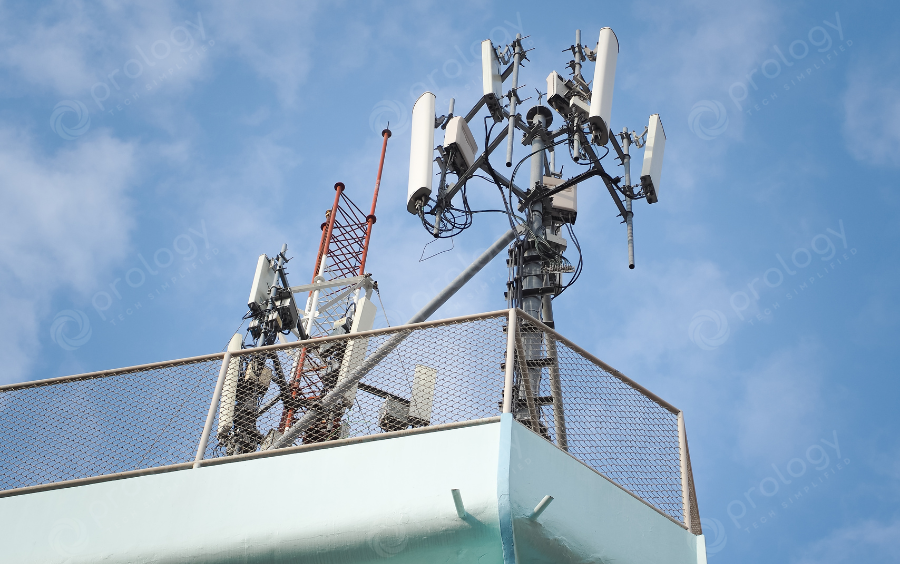
2. Benefits of Deploying 4G/5G Network Equipment in Enterprises
Fast and stable connection
The deployment of 4G/5G network devices in businesses in Australia brings numerous significant advantages, helping businesses maintain strong and flexible connections in an increasingly competitive environment. Below are the key benefits:
-
Fast connection speeds: 4G/5G technology provides high bandwidth, allowing businesses to handle tasks such as transferring large amounts of data, online meetings, and cloud application access quickly, optimizing workflows and increasing productivity.
-
Stable and continuous connectivity: In Australia, with the development of telecommunications infrastructure, 4G/5G networks offer low latency and stable connections. This helps businesses minimize disruptions in critical operations, especially in online transactions and customer interactions.
-
Flexibility in deployment: 4G/5G enables Australian businesses to easily expand or relocate networks without relying on fiber-optic infrastructure. This is highly useful for businesses operating in multiple locations or needing temporary network setups.
-
Support for IoT and smart devices: With 5G, businesses can connect multiple IoT devices without worrying about reduced performance. This is an ideal solution for industries such as transportation, logistics, and supply chain management, where monitoring and managing multiple devices simultaneously is essential.
Network connectivity is a crucial factor for businesses in Australia to ensure smooth operations, increase productivity, and maintain competitiveness in the market. Common network connectivity solutions for businesses in Australia include:
-
Fixed broadband connections: Fiber optic (NBN) is a popular option that provides high-speed internet access, suitable for the large data transmission needs and continuous connectivity of medium and large businesses.
-
4G/5G mobile networks: Advanced mobile network solutions, especially 5G, allow businesses to access wireless internet with fast speeds and low latency. This is ideal for businesses that need flexibility, do not want to rely on fixed network infrastructure, or require mobility.
-
Virtual Private Network (VPN): VPN is a common solution that helps businesses secure remote connections and protect critical data, especially when employees work from home or different locations.
-
Advanced networking devices: Businesses in Australia can use network devices from well-known brands like Cisco, Ubiquiti, and Cisco Meraki to optimize internal networks, ensure transmission speeds, and enhance security.
Internal Link: See more about Prology's device network

3. Factors to consider when choosing 4G/5G network equipment
Compatibility and bandwidth support
Choosing the right 4G/5G network devices for businesses is crucial to ensure high network performance, especially for businesses that require large bandwidth. Below are some factors to consider when selecting 4G/5G network devices that support bandwidth:
-
High bandwidth support: Ensure that the device can handle large bandwidth, suitable for tasks such as large data transfers, high-quality video conferencing, and using cloud applications. Devices like Cisco Meraki or Ubiquiti offer the ability to manage high network traffic and ensure stable connections.
-
Speed and low latency: The device must support the latest 4G/5G standards to deliver high speeds and low latency, allowing businesses to handle tasks that require quick response times, such as real-time transactions or remote control.
-
Remote network management: The 4G/5G device should support remote management, enabling businesses to monitor and manage the network easily through centralized control interfaces, saving time and effort in maintenance and troubleshooting.
-
Scalability and IoT compatibility: The network device should be scalable, suitable for connecting many IoT devices without reducing network performance. This is essential for businesses in sectors like manufacturing and logistics.
-
Security features: Ensure that the 4G/5G device comes with advanced security features, including data encryption and protection against cyberattacks. Trusted brands like Cisco, Cisco Meraki, and Ubiquiti often provide comprehensive security solutions.
-
Flexibility in deployment: Mobile network devices should be easy to deploy and configure, allowing businesses to quickly set up their network without relying too much on fixed infrastructure.
4G/5G network devices not only offer flexibility, speed, and easy management but also serve as an ideal solution for businesses in Australia looking to optimize network connectivity and enhance security.

Evaluate cost and performance
The cost of 4G/5G network devices for businesses can vary depending on the type of device, brand, and features included.
-
Supported features: Devices with remote management capabilities, advanced security features (such as firewalls and VPNs), and support for multiple IoT devices will cost more than basic connectivity devices. Features like SD-WAN (Software-Defined Wide Area Network) that optimize connections across multiple locations can also increase device costs.
-
Scalability and upgrade options: Network devices that are easily scalable, support multiple simultaneous connections, or can be upgraded to new technology standards (such as upgrading from 4G to 5G) tend to be more expensive. This ensures that the device does not become outdated as technology evolves.
-
Deployment and maintenance costs: In addition to the purchase price of the device, businesses need to consider deployment and maintenance costs. Setting up network infrastructure, configuring systems, and maintenance can represent a significant portion of the total cost. Some devices may require professional technicians for installation and management, leading to higher labor costs.
-
Long-term investment value: Although the initial cost of 5G devices may be higher, they provide long-term benefits due to their fast connectivity, low latency, and stability. 5G devices can serve businesses for a longer period without frequent upgrades, helping to save costs in the future.
The cost of 4G/5G network devices depends on usage needs, business scale, and required features. Investing in high-quality devices will help businesses optimize operations, minimize disruptions, and enhance network performance in the long run.
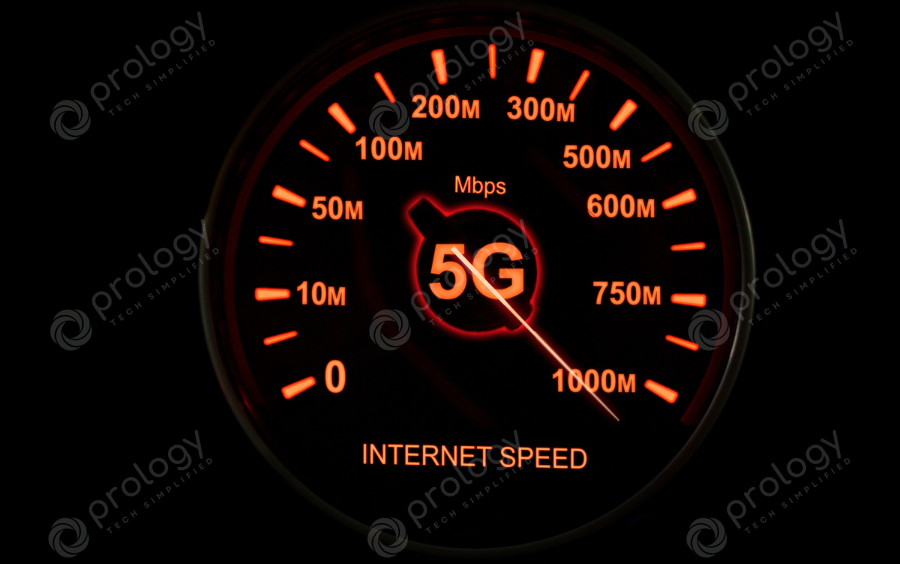
4. Deployment of 4G/5G Network Equipment in Australia
Development and integration process
Deploying 4G/5G network devices in Australia requires a careful process, from assessing needs to selecting suitable equipment and integrating it into the existing network system.
-
Needs Assessment
-
Selecting Suitable Equipment
-
Integration Planning
-
Installation and Configuration
-
Coordination with Service Providers
-
Testing and Evaluation
-
Training and Support for Employees
-
Maintenance and Improvement
The deployment and integration process of 4G/5G network devices in Australia is complex but essential to ensure that businesses have fast, stable, and efficient network connectivity. Close coordination with service providers and attention to each step in the process will help businesses operate more effectively in the modern business environment.
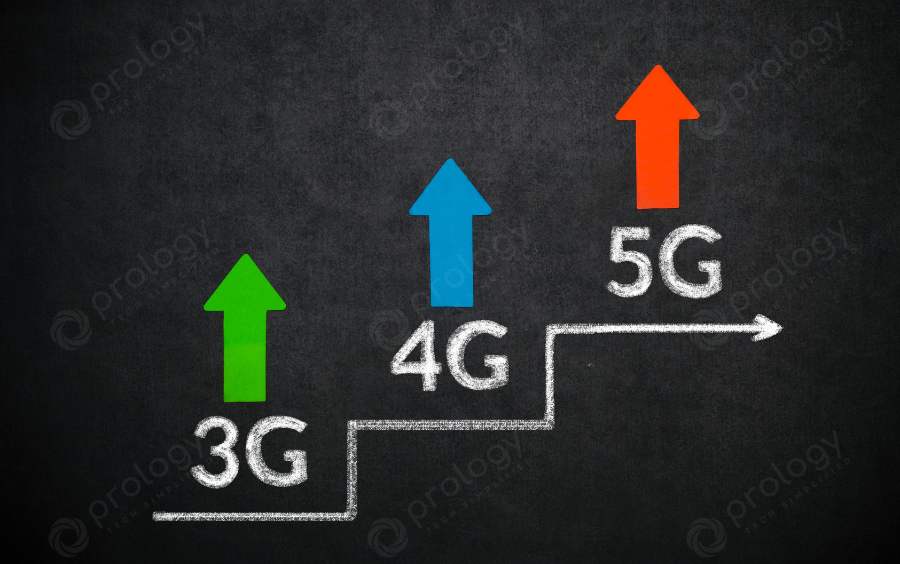
Support and maintenance of network equipment
To maintain optimal performance of 4G/5G network devices, it is essential to ensure they are properly maintained and supported. Choosing a service provider capable of offering prompt and effective support helps businesses minimize downtime and technical issues.
Key Points:
-
Regular Maintenance: Schedule routine checks and updates to ensure devices function smoothly.
-
Effective Technical Support: Partner with a provider that offers 24/7 support to quickly resolve any issues.
-
Performance Monitoring: Utilize tools to continuously monitor device performance and address potential problems before they escalate.

5. Extension Tools and Solutions for 4G/5G Network Devices
Use management and analysis tools
Managing 4G/5G network devices requires effective tools for monitoring, configuring, and optimizing performance. Here are some popular management tools:
Performance Monitoring
-
Network Monitoring Tools: Tools like SolarWinds, Nagios, and PRTG Network Monitor help track device performance, network traffic, and detect issues in a timely manner.
-
Application Performance Management (APM): Tools like Dynatrace or New Relic monitor the performance of applications running on the 4G/5G network.
Configuration Management
-
Configuration Management Tools: Use tools like Ansible, Puppet, or Chef to manage and automate device configurations, reducing human error.
-
Backup Solutions: Tools like Cisco Prime or Ubiquiti UniFi Controller assist in backing up device configurations and restoring them when necessary.
Network Security
-
Network Security Tools: Utilize tools like Fortinet, Cisco ASA, or Palo Alto to monitor and protect the network from security threats.
-
Vulnerability Scanners: Tools like Nessus or Qualys help scan and detect security vulnerabilities in the system.
Resource Management
-
Resource Management Tools: Tools like ManageEngine OpManager monitor resource usage and optimize bandwidth for 4G/5G devices.
-
Load Balancers: Use load balancing devices to efficiently distribute traffic and improve network performance.
User Interface and Access
-
Web-based Management Interfaces: Many 4G/5G devices come with web-based management interfaces that allow for easy configuration and monitoring.
-
Mobile Apps: Manufacturer-provided mobile applications enable remote management and monitoring of devices.
Using effective management tools is crucial for maintaining and optimizing the operation of 4G/5G network devices. These tools not only help monitor and configure devices but also protect the network from threats and ensure optimal performance.
Internal Link: Discover how to upgrade from 3G to 4G/5G

6. Ensure Network Performance With 4G/5G Devices From Prology
Prology supports comprehensive 4G/5G network
Prology provides a comprehensive 4G/5G network, enabling businesses to optimize network connectivity, ensuring high speed, stability, and security. These solutions are designed to meet the growing demand for mobile networks, allowing businesses to maintain efficient operations even without fixed connections.

Examples of products supporting Prology’s 4G/5G network
-
Cisco Meraki MG41 Cellular Gateway: This device converts 5G signals into wired LAN connections, offering high-speed connectivity and easy management through the Meraki cloud platform.
-
Peplink MAX BR1 Pro 5G: A router that supports 5G with dual-SIM features, providing a robust and secure mobile solution for demanding mobile applications.
-
Ubiquiti UniFi LTE Pro: Provides 4G LTE network connectivity as a backup or primary solution, ideal for small and medium-sized businesses.
CTA Button: Contact Prology now



